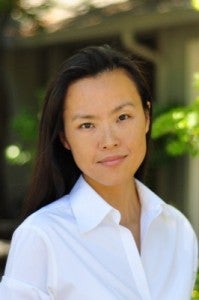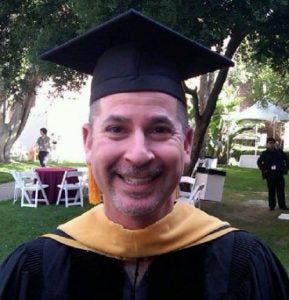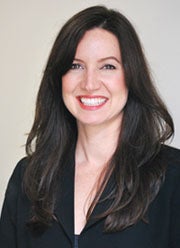Immigration and human rights: What a “zero-tolerance” policy is doing
With a “zero-tolerance” policy from the current administration on illegal immigration — and, until recently, a policy that separated children from their parents or guardians — the subject of entering the United States with legal permission is top-of-mind for many people.
What are the legal issues that come into play with the current immigration policies? How are children being affected, and what are the long-term implications? What can be done to protect children, and what policies would make sense?
Contact: Jeremy Pepper at pepper@usc.edu or (213) 740-8606
 There are humane alternatives to detention
There are humane alternatives to detention
“We need not choose between detaining children and parents separately, and detaining them together as a family; prosecutorial discretion can be exercised to not bring criminal charges against them in the first place,” notes Emily Ryo, associate professor of law and sociology at the USC Gould School of Law.
“There are also humane alternatives to detention that allow people to wait for their cases on the outside even if they are being criminally prosecuted,” adds Ryo.
Emily Ryo is an associate professor of law and sociology at the USC Gould School of Law, and an Andrew Carnegie Fellow. Immediately prior to joining USC, she was a research fellow at Stanford Law School. Ryo’s current research focuses on immigration, criminal justice, legal attitudes and legal noncompliance, and procedural justice. She approaches these issues through innovative interdisciplinary lenses, using diverse quantitative and qualitative methods.
Ryo served as a law clerk to the Honorable M. Margaret McKeown of the Ninth Circuit Court of Appeals, and practiced law at the international law firm of Cleary, Gottlieb, Steen, and Hamilton. She received a JD from Harvard Law School and a PhD in Sociology from Stanford University.
Contact: eryo@law.usc.edu or (213) 740-3409
 Long-term impacts of separation of children from parents, similar to wartime trauma
Long-term impacts of separation of children from parents, similar to wartime trauma
“In my role as a mental health consultant to the United Nations after the Bosnian War, the most traumatic experience children often described to me was the separation from their mom and dad,” notes David Schwartz, associate professor of psychology at the USC Dornsife College. “The crisis currently unfolding on the U.S. border with Mexico might seem very different from the aftermath of a brutal military conflict. However, for the children, the scars of being forcefully removed from the parents can be similar to wartime trauma.”
“Plus, the new executive order doesn’t change anything. The damage is done. The fact is that U.S. policy should always emphasize keeping families together,” adds Schwartz.
David Schwartz is an associate professor of psychology at USC Dornsife College of Letters, Arts & Sciences. His current research interests focus on children’s peer relationships and on the link between early social maladjustment and later disorder. Prior to joining USC, he served as Program Coordinator of a United Nations-funded psychosocial intervention program in Mostar, Bosnia. This program was designed to provide mental health services to children affected by the civil war in the former Yugoslavia.
Contact: davschw@usc.edu or (213) 740-3968
 Families seeking humanitarian relief and asylum
Families seeking humanitarian relief and asylum
“The executive order basically restores a very controversial Obama policy of detaining families, but it appears to be on a much bigger scale. The detention of families still means we are detaining children — which is outrageous — and ignores the reality that many of the families are seeking humanitarian relief in the form of asylum, and have not been determined to be a danger to the community or flight risk,” says Jean Reisz, Audrey Irmas Clinical Teaching Fellow and adjunct professor at the USC Gould School of Law. “The current policy of ‘zero-tolerance’ and mass detention is a political tool to deter illegal immigration when illegal immigration is already at an all-time low.”
“The Flores agreement does not prohibit the detention of children under all circumstances, but it seeks to maintain family unity and the least restrictive means of detention for children. Many interpret that to impose a legal obligation on the government to process families at the border and release them to attend their hearings so that the child will be released with, and to, the parent as required by Flores.”
Jean Reisz, the Audrey Irmas Clinical Teaching Fellow and an adjunct professor at the USC Gould School of Law, co-teaches the Immigration Clinic, as well as supervises cases in the Post-Conviction Justice Project. Under her supervision, second and third year law students enrolled in the Immigration Clinic represent individuals seeking relief from removal in the form of asylum, withholding, and relief under the Convention Against Torture in proceedings before the Immigration Court, Board of Immigration Appeals, and U.S. Court of Appeals for the Ninth Circuit. The Immigration Clinic has recently expanded its scope to represent unaccompanied minors.
Reisz was a trial attorney for six years at the Los Angeles County Public Defender and Alternate Public Defender where she handled misdemeanor and felony cases in downtown Los Angeles and Compton. Reisz graduated from USC Gould School of Law.
Contact: jreisz@law.usc.edu or (213) 821-3108
 Policies will not stop people from migrating
Policies will not stop people from migrating
“The Trump Administration contradicted its argument that it had no power to end its zero-tolerance policy of separating families at the border. The new executive order reverses their policy of family separation, but it could lead to indefinite family detention,” notes Jody Agius Vallejo, associate professor, department of sociology, USC Dornsife College.
“Contrary to the administration’s claims that a border wall and draconian policies mandating familial separation and detention will serve as mechanisms of prevention through deterrence, a long body of research demonstrates that these policies do not stop people from migrating. Trump’s border control policies will continue to have numerous negative spillover effects on immigrants, their U.S. citizen family members and the U.S. communities to which they are connected,” adds Vallejo.
Jody Agius Vallejo is an associate professor, Department of Sociology, USC Dornsife College of Letters, Arts & Sciences; associate director at USC Center for the Study of Immigration Integration; faculty affiliate, American Studies and Ethnicity. Vallejo specializes in immigrant integration, race/ethnicity, and social stratification. She is an expert in immigrant integration and race and ethnicity, with a focus on Latinos and Latino Americans.
Contact: vallejoj@usc.edu or (714) 319-5449



